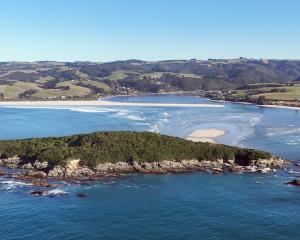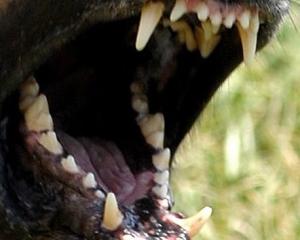The University of Otago has almost completely written off the value of its shares in an experimental drug company after an unsuccessful trial involving people with Parkinson's disease.
Through its wholly-owned subsidiary company Otago Innovation Ltd, the university holds 1.8 million shares in Antipodean Pharmaceuticals.
They were valued at $NZ1.4 million in 2007 but were revalued at the end of last year at just $50,000.
The write-down was reported to a university council meeting this month.
Otago Innovation chief executive Colin Dawson yesterday described the move as "prudent".
"Because of the uncertainty [about the future of the company] we decided it was prudent to be conservative with our accounting."
Antipodean Pharmaceuticals, which has offices in New Zealand and the United States, was formed about five years ago to develop medical applications for a discovery by two University of Otago chemistry staff, Prof Robin Smith and Dr Michael Murphy.
They created a new chemical compound found to be a powerful antioxidant with the ability to repair tiny damaged organs within a cell.
The university had not actually lost money on the share value write-down, Mr Dawson said, as the university contributed the intellectual property rights to the compound in exchange for its shares.
Antioxidents help prevent cell damage, which in humans can lead to many illnesses and diseases including strokes, cancer, Parkinson's, inflammation of the liver and hepatitis C.
Cell damage also breaks down collagens in the skin, causing wrinkling, age spots and permanent scarring from acne, surgery or wounds.
Antioxidents also have industrial uses as a preservative for foods, cosmetics, rubber and fuels.
A trial showed the Otago compound - patented as MitoQ - helped patients with non-alcoholic steatohepatitis (NASH), one of the world's most common liver diseases.
However, a more intensive 12-month trial with Parkinson's patients in New Zealand and Australia showed while MitoQ was well tolerated by patients and safe to use, there was no significant impact on the progression of the disease.
While the Parkinson's trial "did not give the end result expected", Mr Dawson said the compound - and Antipodean Pharmaceuticals - still had potential to create commercially viable products, particularly in the anti-ageing and skin repair field.
The company is one of about six the university has invested in.
The university council was told shares in BLIS Technologies, a Dunedin-based company manufacturing and selling natural antibiotics, have also been written down by $149,629.
Mr Dawson said the Otago Innovation invested in "embryonic" companies where there was no guarantee of success.
"The general expectation is that we will get one or two successful ones, some that survive and others that will fail."











